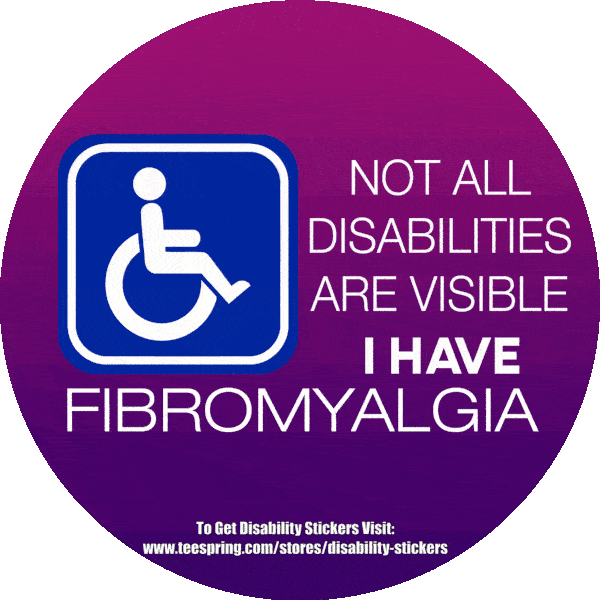Fibromyalgia and Pregnancy
If you have fibromyalgia and thinking about getting pregnant, it’s important that you should know about both conditions. Sometimes symptoms of fibromyalgia such as pain and depression are thought to be the signs of pregnancy. As a result they may be under-treated. In addition, the added stress of having a baby may cause fibromyalgia symptoms to flare, making you feel much worse.
Managing fibromyalgia during pregnancy is possible. But you need to spend time learning about the effects of pregnancy on symptoms of fibromyalgia syndrome (FMS). You also need to stay in touch with your fibromyalgia specialist when symptoms flare.
It is also important to visit your ob-gyn for routine pre-natal care visits. During a visit your doctor may screen you for depression and work with you to treat these symptoms.
How does fibromyalgia affect pregnancy??
With pregnancy there is tremendous increase in the amount of hormones in your body. Along with weight gain, your body is out of balance, and your shape takes a different form. Most women experience nausea and fatigue especially during the first 3 months of pregnancy. Is it any wonder that fibromyalgia symptoms are often misdiagnosed and thought to be normal part of pregnancy?
There are few studies on fibromyalgia in pregnant women. However a study at Temple University found that women with fibromyalgia had more symptoms of pain during pregnancy than women who did not have fibromyalgia. Also, fibromyalgia symptoms seemed to be exacerbated during pregnancy. Pregnant women with fibromyalgia may experience significant pain, fatigue, and psychological stress, especially in the first 3 months.
Does stress trigger fibromyalgia during pregnancy??
Pregnant or not, stress-both emotional and psychological- is known to trigger fibromyalgia. Considering all that is involved with pregnancy, labor and delivery, it is obvious that pregnancy is a time of high stress. With pregnancy there are changes in the levels estrogen, progesterone, and other hormones. Also, since a time after a pregnancy can be difficult for mothers-even those without fibromyalgia-it is important to be aware of the possible increase in pain and other symptoms that may occur after giving birth.
Are fibromyalgia medications safe during pregnancy??
At this time, so fibromyalgia medications are completely safe to use during pregnancy. In fact, doctors recommend that women with fibromyalgia go off of pain killers and anti depressants before they become pregnant. However be sure that you talk with your doctor before you stop any medicines.
What treatments are recommended for fibromyalgia during pregnancy??
To avoid letting fibromyalgia interfere with pregnancy, know what steps you can take to ease these symptoms. Then seek support from your doctors, family members, and friends. Treatments for pregnant women with fibromyalgia may include massage, exercise, yoga, meditation and rest.
If you suffer with fatigue and ache all over, make sure you rest 20 to 30 minutes at least two or 3 times a day. To ease the achiness of tender point pain, try moist heat applications twice a day. A warm shower or bath is a good way to apply moist heat. Just make sure that the water temperature is 100 degrees Fahrenheit or lower and limit use to 15-20 minutes at a time. Water that is Warm enough to raise your body temperature to 101 Fahrenheit or higher, may cause birth defects.
Also use gentle stretching exercises and exercises recommended by your doctor for pain relief.
Why is exercise important for fibromyalgia and pregnancy??
Exercise helps keep you fit. It strengthens muscles, keeps joints flexible and boost mood by increasing serotonin in your body. Serotonin is one of the neurotransmitter that scientists have found to be related to fibromyalgia. Neurotransmitters are chemicals that send specific messages from one cell to another. While only a small percentage of serotonin is located in the brain, this neurotransmitter is believed to play a vital role in mediating moods.
Too much stress can lead to permanently low levels of serotonin. That in turn can lead to aggression, and feelings of depression. Lack of exercise can aggravate low serotonin levels. On the other hand increased levels of serotonin in brain are associated with a calming, anxiety reducing effect. In some cases they are also associated with drowsiness. Having stable function in the brain circuits that use serotonin to send messages is linked with a positive mood.
Talk to your health care provider about the level of activity that is right for you.
Are women’s moods especially affected by serotonin functioning??
It appears that women may have a great sensitivity to changes in serotonin. Mood swings during the menstrual cycle or menopause or following the birth of a baby are induced by the action of hormones on neurotransmitters.
Various factors can have a positive effect on serotonin functioning. These include sunlight, certain carbohydrate foods, some hormones and exercise. Exercise acts as nature’s tranquilizer, helping to boost serotonin activity in the brain. Studies show that exercise also trigger the release of epinephrine and nor epinephrine, which are known to boost alertness.
For reference
SOURCES:
Women’s Healthcare Forum: “Fibromyalgia: The Basics.”
Arthritis Foundation: “Water Exercises.”
McIlwain, H. and Bruce, D. The Fibromyalgia Handbook, Holt, 2007.
For support and Discussion join the group “Living with Fibromyalgia and Chronic Illness”
Subscribe to our website for Email notification of our new Posts. Like and Follow us on Facebook. Swipe Left to Read more on Fibromyalgia or Click Here …

1 comment
[…] Read:> Gynecological Issues in Women with Fibromyalgia> How does Fibromyalgia affect Pregnancy?> Fibromyalgia – A pain in the […]